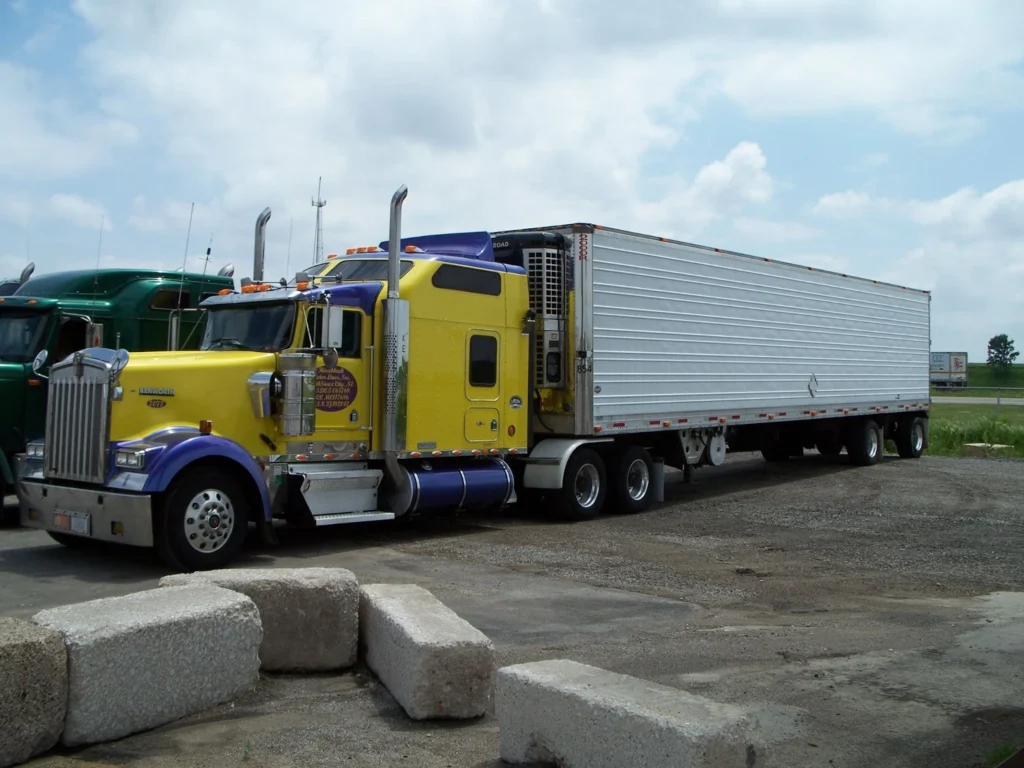Leasing a semi truck is a suitable solution for some owner-operators or small trucking companies. Still this choice requires an analysis of the leasing pros and cons, costs, and requirements. Knowing these factors, you can make the right decision in accordance with your financial situation and business goals.

Costs of Leasing a Semi Truck
The costs of semi truck leasing may vary amid factors such as the truck type, the lease term, and the leasing company. The average range for the industry is $1,000-3,000 per month. It covers leasing basic models and more advanced trucks with additional functions.
In particular, some lease contracts include maintenance services. It increases the monthly costs but offers fewer burdens related to maintenance and repairs. Sometimes, leasing companies may require a down payment or security deposit. It ranges from a few thousand dollars to a percentage of a truck’s value.
Still, this decision can require fewer costs in the short term than buying as it involves less money upfront and can include maintenance and insurance on a monthly basis. The saved costs can be used for other business needs, providing additional benefits. Leasing a semi truck may also provide an access to newer models with better operational and fuel efficiency.
Still, it’s necessary to read the lease agreement to determine any hidden costs. In particular, it can include fees for exceeding the mileage limit or early termination penalties.
Leasing vs. Buying a Semi Truck
If you decide whether to buy or lease a semi truck, you must review the long-term consequences of these options. The decision can significantly impact your business’s finances and operations.
| Aspect | Leasing | Buying |
|---|---|---|
| Initial costs | Lower costs and easier operations start | Higher upfront costs with significant initial investment |
| Flexibility | The usual lease term is 3-5 years, providing frequent updates to newer models | Long-term use of the truck, with no need to upgrade unless desired |
| Maintenance | May contracts foresees maintenance and repairs | The owner is responsible for all maintenance and repairs |
| Mileage restrictions | Leases often involve mileage limits with additional fees for exceeding | No limits with an option to drive as much as needed |
| Tax benefits | Lease payments can be deducted as a business expense | Deductions are available for depreciation and loan interest |
| Long-term cost | Monthly payments can be more expensive in the long run | Potentially lower long-term cost amid no monthly payments |
| Capital Tie-Up | Less capital tied up allows investment in other aspects | Significant ties up in the purchase that reduce available funds |
What Are the Requirements to Lease a Semi Truck?
For semi truck leasing, you need to meet the specific requirements set by the leasing company. Usually, they include:
- Credit check. Leasing companies check your credit history to verify your financial responsibility. A good credit score increases your chances of approval and may provide better lease terms.
- Down payment. Some lease agreements may include a down payment. Still, it will be less compared to a truck purchase.
- Insurance. You should have suitable insurance coverage for a leased truck. It must cover liability, physical damage, and cargo insurance.
- Operations. You need the necessary permits and operations approvals to use the truck for commercial purposes.
- Experience. Some leasing companies may require a minimum driving experience or a proven track record in trucking operations.
- Financial statement. Some leasers may request financial statements to ensure you can provide the monthly payments.
- References. Personal or business references may be required to prove your reliability and business practice.
Meeting these requirements can be challenging. Still, leasing companies may offer programs designed to assist newcomers to the industry.
Is it a Good Idea to Lease a Semi Truck?
The suitability of a semi truck leasing depends on your needs and financial situation. Leasing will be a suitable choice if you need to save costs with lower monthly payments and want to upgrade your truck every few years. It also foresees such benefits as covering maintenance and repair costs. With a leased semi truck you’ll have an option to upgrade a model once the lease is over. It means access to the latest advancements, including fuel and operations efficiency.
However, for companies with a stable financial position that plan to use trucks for a longer period and want to build equity, buying may be a better option. Truck ownership ensures more freedom and can be more cost-effective in a longer perspective. With your truck, you can recoup some of the initial investment in the future.
To decide what solution is right for you, you need to consider the impact of leasing on a company’s financial health. Continuous lease payments can add up over time, even in case of a business downturn. At the same time, owning a truck can provide higher financial security amid no monthly payments once the loan is paid off.
Conclusion
Leasing a semi truck can provide several benefits for your business, including lower initial investment, flexibility, and covered maintenance and insurance. Still, it also involves cons such as no ownership and potential mileage restrictions. Knowing the leasing costs and requirements and analyzing your business needs helps you make an informed decision. Whether leasing a semi truck is a suitable decision depends on your individual opportunities and long-term business goals.If you want to obtain detailed guidance and expert advice on trucking operations optimization, Logity Dispatch can help you. Our dispatch services will provide better navigation of the trucking sector and provide smooth and efficient operations.







